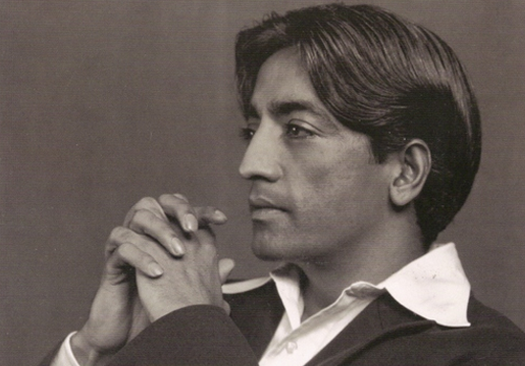"If one wishes to know that
which is truth, one must be totally free from all religions, from all
conditioning, from all dogmas, from all beliefs, from all authority which makes
one conform, which means, essentially, standing completely alone, and that is very
arduous…" - Krishnamurti
“Each
philosopher, each bard, each actor, has only done for me, as by a delegate,
what one day I can do for myself.” - Ralph Waldo Emerson
The most important theme I
took away from Emerson’s essay “The American Scholar,” is the importance of discovering
truth for ourselves, by ourselves, not by simply imitating those who came
before us, but to stand on your own, as a light unto yourself. That we must use the past, not as a crutch,
but as inspiration and inspiration only.
For to imitate is regurgitate, and destroy all personal discovery and
inquiry. To come to a conclusion based
on the past puts an end to your own curiosity and experimentation. When one imitates, there is no searching, no
inquiry that one must undergo because it is all done for you. So, essentially this quote is about imitation
versus authenticity. Emerson rails against
a certain kind of intellectual, the “bookworm” as we discussed in class, or,
the person attached to literature as a kind of fetish. The bookworm imitates what is read, idealizes
it, but does not put it into practice.
The bookworm discovers nothing for themselves, they are stuck in the
past, and nothing is new for them. The “mind
of the past” is another important theme of “The American Scholar.” By this, Emerson is referring not only the
wealth of literature, philosophy, and culture of the past, but the modern mind
which is overshadowed and so crippled by these things. No matter what we do, the great figures of
the past, Shakespeare, Chaucer, among others, loom over the English writer, we
must always live up to the standards of genius.
In order to do this, according to Emerson, we imitate genius, we
emulate, we “Shakespearize,” but we ultimately have no genius for
ourselves. So the task of the true scholar
is then, through a return to nature, a return to reality, to become free of the
past and to seek to create for ourselves.
If the past has value, it is for inspiration, so that we may discover
our own genius now. This entire
sentiment brings to mind a more modern day spiritual teacher name Krishnamurti.
Krishnamurti once said, “We have all become good gramophone records.” In other words, we all imitate, but few of us
stand on our own. So when Emerson says, “what
one day I can do for myself, he is saying that in the end, you must discover
the truth for yourself, only then should you accept it.

Excellent! Especially this: "That we must use the past, not as a crutch, but as inspiration and inspiration only." That is: every thing is only a "means" not an end. Nice connections.
ReplyDelete